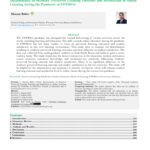Nzinga Mbemba Letters To The King Of Portugal
Nzinga Mbemba Letters To The King Of Portugal – He was the sixth ruler of the Kingdom of Congo of the Lukeni Kanda dynasty. He ruled in the first half of the 16th Century, from 1506 until his death in 1542. He is called “the Apostle of Kongo” because of his role in making Kongo a Christian Kingdom. His name is King Afonso.
After the Portuguese navigator Diogo Cão reached the Kingdom of Kongo in 1482, relations between Kongo and Portugal increased. The contacts multiplied and in 1491, the Kongo king Nzinga Nkuwu, the Father of Nzinga Mbemba, was baptized under the name João I.
Nzinga Mbemba Letters To The King Of Portugal
Afonso was born Nzinga Mbemba, baptized Afonso and upon the death of his father, assumed the throne in 1506. He was not only educated, but also spoke and wrote in Portuguese.
The Kingdom Of Kongo And The Portuguese: Diplomacy, Trade, Warfare And Early Afro European Interactions (1483 1670)
Afonso was popular for embracing religion at the expense of tradition. He adopted Catholicism as a result of the strong relationship he had with the Portuguese.
His devotion to his newly found religion spurred his actions to build many Catholic churches throughout the kingdom. He also established Catholicism as the state religion, and required the burning of any non-Christian idols or objects related to magic and sorcery, removing art objects of extreme significance to the cultural heritage of the Congo.
It was during the reign of Afonso that relations between Congo and the Portuguese became more active, to the benefit of both countries. He strategically and purposefully pursued a mutually beneficial relationship with Portugal.
King Manuel of Portugal supplied missionaries, teachers and craftsmen to his African counterpart who paid for their services in copper and ivory. The relationship between the Portuguese and Congo was based on Trade. This business was initially peaceful between them, with letters constantly exchanged between Alfonso and Manuel.
The Human Record
Then, everything changed when the Portuguese became greedy and preferred to engage in the slave trade rather than practice their trades.
Back in the day, there were prisoners of war, and in some cases, their freedom and rights were restored. Knowing the extent of their labor force, the Portuguese and Afonso traded with prisoners of war, and in exchange, Portugal helped support in setting up an administrative system and building religious institutions in the Congo.
At the very beginning, King Afonso was openly opposed to slavery and opposed the Portuguese insatiable demand for people. Later, he had to relent because of the Congo’s economy. At first, King Afonso sent prisoners of war and criminals to the Portuguese, but they were dissatisfied, and it affected Congo and its neighbors.
With new plantations in Sao Tome requiring workers in huge numbers, the hunger for slaves grew, and soon after, it became uncontrollable. Due to a high demand for slaves, the Portuguese began to trade illegally without the approval of King Afonso, dominating the “prisoners of war” exchange. In this, they devised other means such as kidnappings to obtain
Comparative Unfree Labor Systems
Afonso in his own way tried to stop it. In a letter he wrote to King João III of Portugal in 1526, he was explicit about the depleting effects of the business in his kingdom. “Our country is completely depopulated, and your Majesty should not agree to that,” he emphasized, that “it is our will that in these Kingdoms, there should be no trade in slaves or an outlet for them.”
The slave trade continued unabated until it was dissolved in 1526. That year, Afonso created a commission to investigate the origin of any individual who was to be given as a slave. This helped stop the illegal slave trade taking place in the Congo.
KING Afonso I also tried to resolve the situation diplomatically with letters to the Vatican and also to Portugal. From their answers, he deciphered that they had little intention of changing the actions of the Portuguese traders. For the Portuguese, slave trade was nothing more than a typical business. That is why the commission was established. The Portuguese showed clear contempt for King Afonso’s attitude.
It can be said that Afonso was indifferent and unaware of the impact and costs of slave trade. At first, he cooperated in the barter business with “Prisoners of War”, but later turned it down when he saw it getting out of control. The trade was driven by the greed of both the Portuguese merchants some of the people of King Afonso, who, as he wrote, “were eagerly desirous” of the goods brought into the region by the merchants.
Portuguese Slave Trade In Africa
In the last years of his reign, the debate over who would succeed him led to considerable political maneuvering, including an assassination attempt on his life by eight Portuguese in a church on Easter Day, 1540. Alfonso died in 1542, leaving his son, Pedro, to rule. after him.
Afonso was remembered as an icon, both in Europe and Africa. He sent one of his sons, Henrique Kinu a Muemba, to be trained as a priest. Henry arrived as one of the first, if not the first African bishop in 1518. Afonso is one of the few recognized during the pre-colonial era for his strategic moves to maintain Portuguese and Christian influence in the Kongo Kingdom. King Afonso’s articulate letters to the Vatican and the Portuguese are some of the most important records of pre-colonial Africa.
I Love Africa is Africa’s first online platform that was born out of the inspiration of our love for Africa. This platform is used to promote African culture, history, news, achievements and tourism worldwide.






